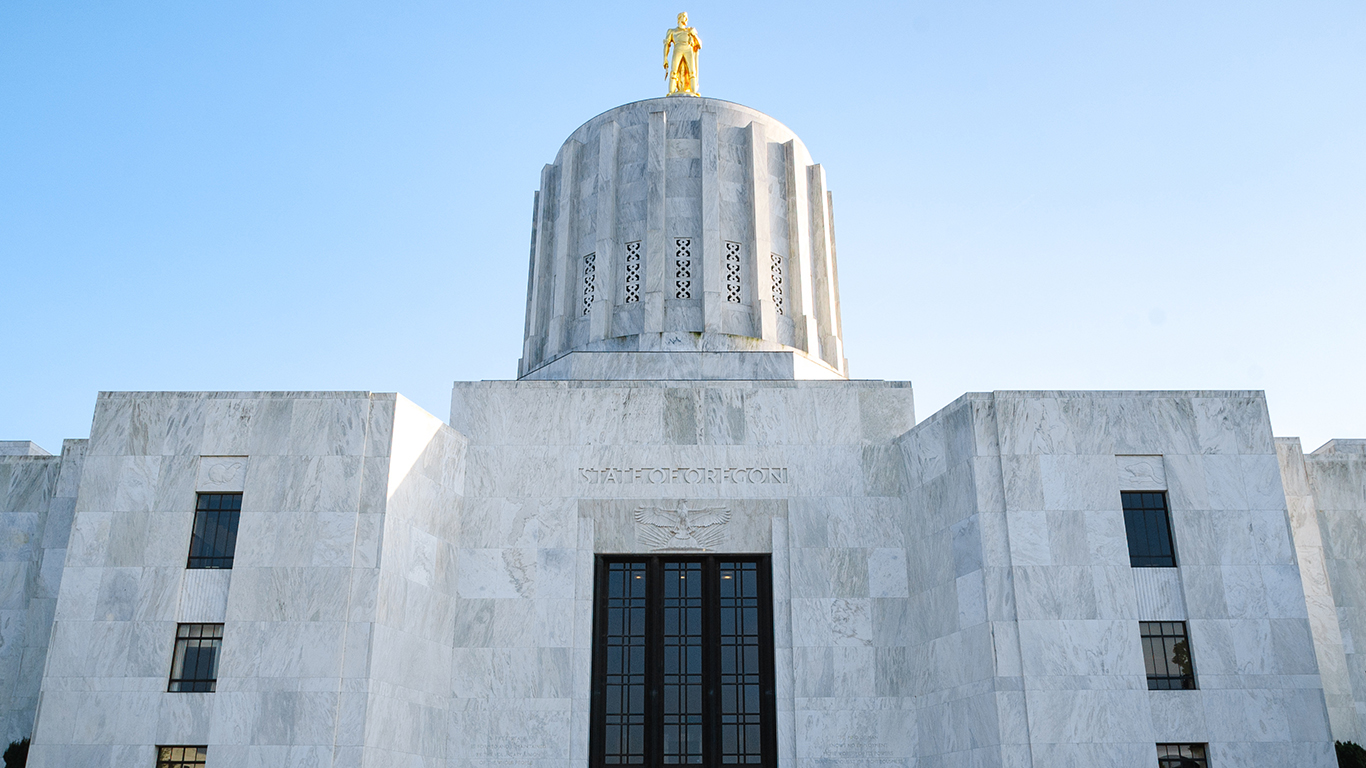Oregon’s first full virtual Legislative Session adjourned Saturday, June 26 at 5:30 p.m. as the House passed its final resolution – sine die.
Following a Session that was almost entirely conducted virtually, the House and Senate concluded with a slight sense of normalcy by opening chamber doors and meeting in the Capitol Rotunda following the final gavel.
This tradition typically unites House and Senate members, staff, lobbyists, activists, and others as individuals line up from chamber-to-chamber across the rotunda to watch the fall of the final gavel in celebration, smiles, waves, and cheers. During the Legislative Session, the bulk of the legislative work including hearings, stakeholder meetings, and lobby/constituent meetings with legislators, were all conducted virtually, with the exception of floor sessions, which were held in-person, and infrequent to start.
The reality of a virtual session coupled with the gravity of policy discussions related to COVID-19, wildfire, police reform, public health, budget issues, and other critical discussions created obstacles in advocacy across the lobby. Amidst all of those challenges, the Association of Oregon Counties’ (AOC) staff and members were an effective voice in most every key policy discussion, highlighting the importance of the county role in emergency response, policy across a number of issue areas, and as a direct service provider for many programs that support Oregonians.
One of the most pressing tasks for the Legislature to complete during an odd-numbered year is sorting agency budgets for the biennium. The 2021 Session started with an unclear view as to what the full scope of the budget would be with unemployment, delays in tax returns, and uncertainty surrounding federal assistance, however, over time, the picture became clear. Oregon had a surge of cash flow to its coffers with $1 billion in additional revenue at the May Revenue Forecast. Due to this surge, certainty across agencies was cemented and options became available for one-time, limited funding for programs and services.
Counties were able to see most services funded at current service level, with some additional investments, including:
- Public Health Modernization Investments – HB 5024 (Oregon Health Authority Budget)
- Certified Community Behavioral Health Clinics- HB 5024 (Oregon Health Authority Budget)
Additionally, significant policy bills advanced during the Session, including:
- Wildfire Policy – SB 762
- Mental Health Crisis Response- HB 2417
- Rural Residential Accessory Dwelling Units – SB 391
- Transportation Omnibus Bill – Funding Flexibility for HB 2017(2017) named projects – HB 3055
- Wildfire property tax relief- HB 2341, HB 2247, and SB 464
With the session in the rearview, AOC staff will now shift to tracking rulemaking and workgroups on issues of importance to counties.
Contributed by: Megan Chuinard | Public Affairs Associate
